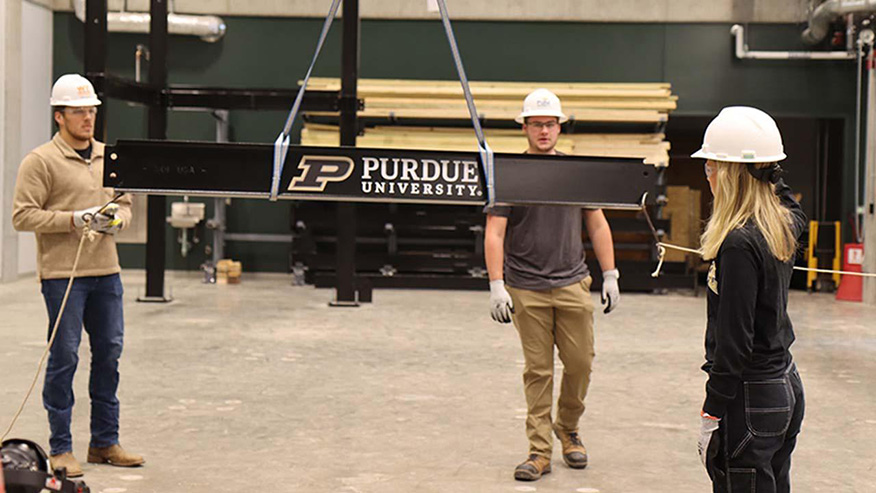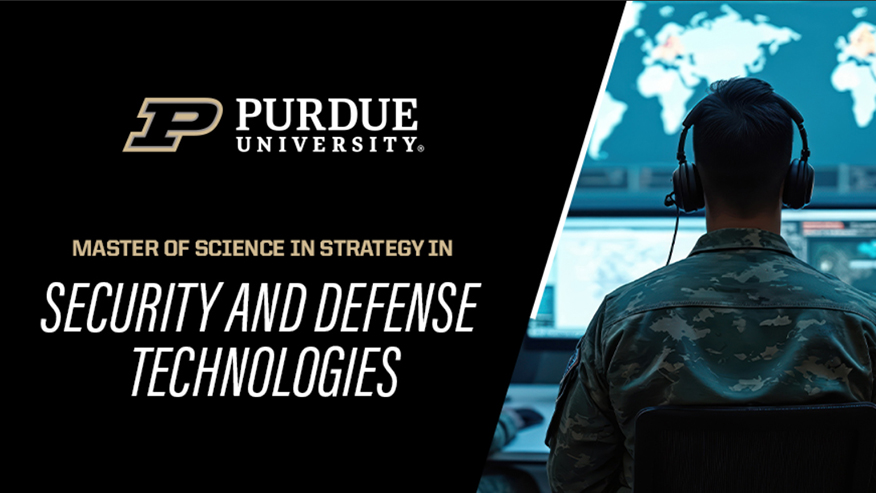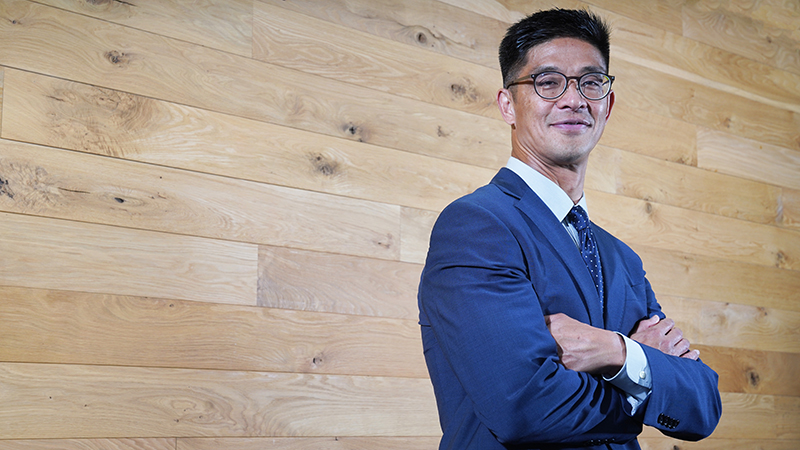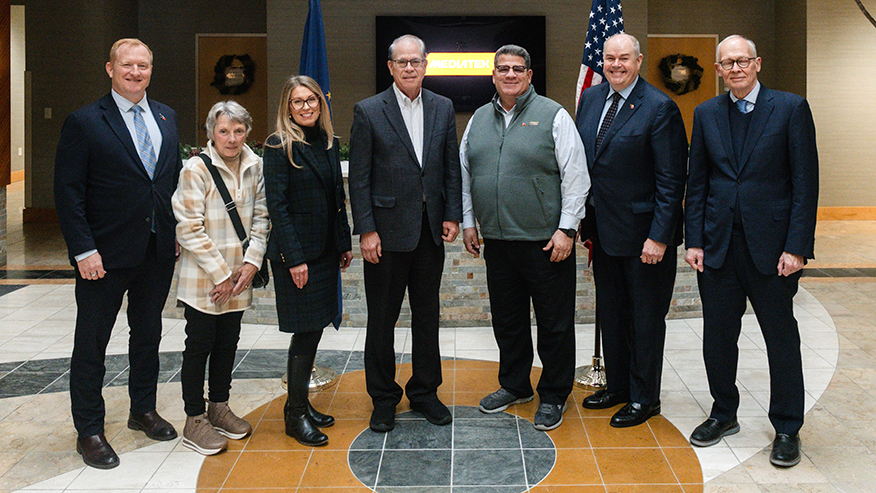Expert: How wildfires contaminate drinking water

Andrew Whelton Andrew Whelton, a professor at Purdue University, is helping communities to more quickly decontaminate water systems following wildfires. (Purdue University photo/John Underwood)
WEST LAFAYETTE, Ind. —
As wildfire season continues, a Purdue University professor is sharing his expertise on how fire damage can impact drinking water.
Andrew Whelton, a Purdue professor of civil engineering and environmental and ecological engineering, has traveled numerous times to the sites of wildfires, where he and his students collect water samples to help guide a community on the best way to restore its water systems.
- This research is expected to lead to the first national recommendations on the roles and responsibilities of utilities and federal and state agencies for addressing drinking water contamination caused by wildfires. Later this year, the recommendations will be published as a “concept of operations plan” written by Whelton and funded by the Water Research Foundation.
- Whelton also provides assistance from afar to communities experiencing post-wildfire drinking water contamination and regularly speaks with disaster response groups across the world to increase awareness of the problem.
- This spring, Whelton traveled to Europe, where he met with public health groups and researchers who were seeking to better understand drinking water contamination after witnessing Europe’s second worst wildfire season last year.
- Whelton and his students have published several milestone papers since testing water samples from the sites of the most destructive wildfires in California and Colorado over the past few years. These studies provided some of the earliest evidence suggesting that chemicals called volatile organic compounds enter drinking water when wildfires degrade plastic pipes. Whelton’s research group also was the first to publish on how wildfires contaminate private drinking water wells, a study his team conducted based on samples from Colorado’s 2021 Marshall Fire.
- The team recently published a paper with findings on how benzene, a chemical leached from heat-degraded pipes, contaminates water softeners. Other upcoming papers look at how wildfire contamination affects plastics used for soda fountains and appliances.
- Watch a video of Whelton explaining his expertise and research on YouTube.
About Purdue University
Purdue University is a top public research institution developing practical solutions to today’s toughest challenges. Ranked in each of the last five years as one of the 10 Most Innovative universities in the United States by U.S. News & World Report, Purdue delivers world-changing research and out-of-this-world discovery. Committed to hands-on and online, real-world learning, Purdue offers a transformative education to all. Committed to affordability and accessibility, Purdue has frozen tuition and most fees at 2012-13 levels, enabling more students than ever to graduate debt-free. See how Purdue never stops in the persistent pursuit of the next giant leap at https://stories.purdue.edu.
Writer/Media contact: Kayla Albert, 765-494-2432, wiles5@purdue.edu
Source: Andrew Whelton, awhelton@purdue.edu



